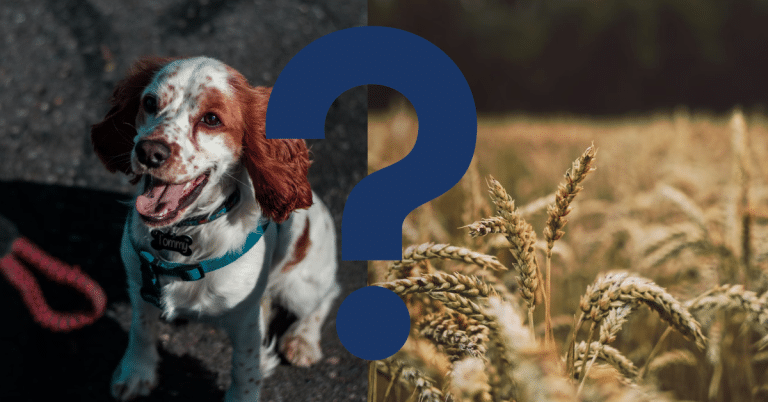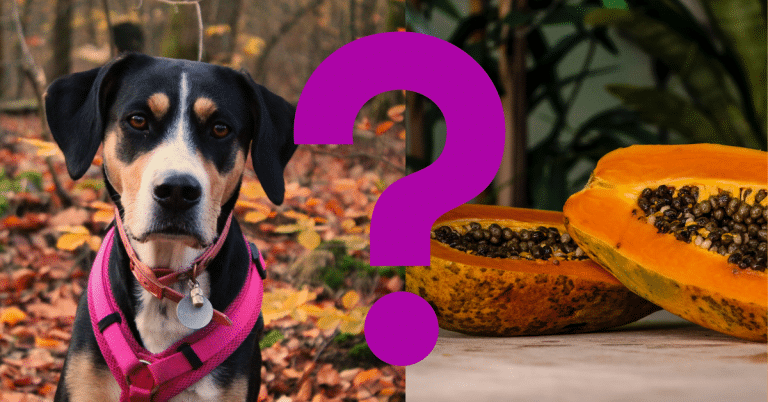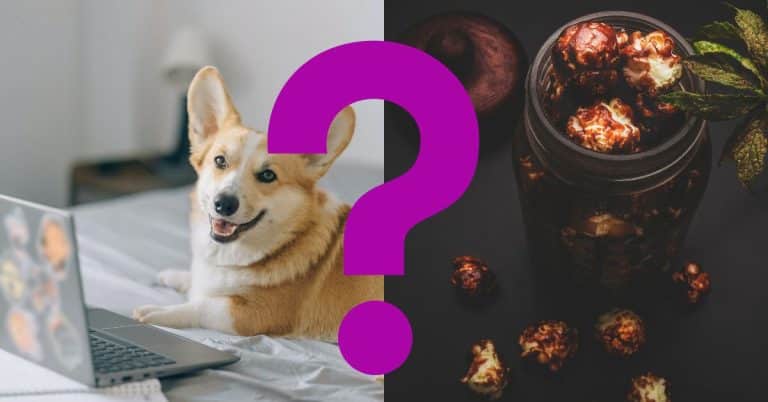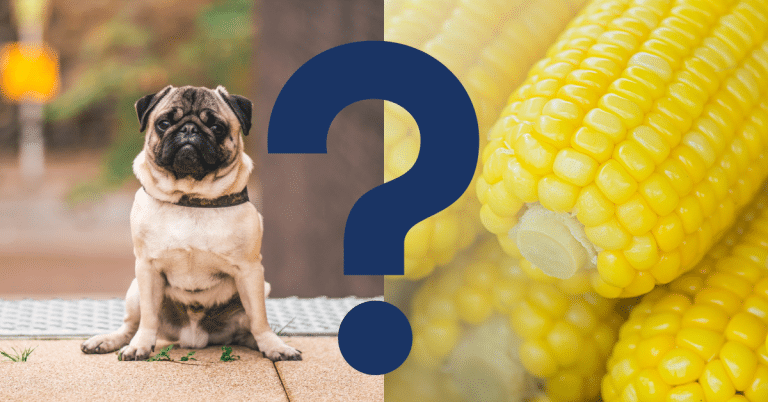Can Dogs Eat Cat Food? A Vet’s Opinion

Cat food has nutritional value for cats, but can you feed Cat Food to your dog?
Yes, dogs can eat cat food. Typically, cat food has fewer carbs and more protein and fat than dog food, but it is not recommended to use it as their primary diet.
Benefits Of Cat Food For Dogs
Here are some further details on the potential advantages and feeding cat food to dogs:
- More protein: Cats are obligate carnivores, so they need more protein in their diet. Hence cat food often has more significant quantities of protein than dog food. A diet rich in protein may also benefit certain dogs, especially those with high energy needs.
- Cat food often contains more fat than dog food, which might be advantageous for dogs who need to gain weight or for dogs that need more calories to maintain their weight.
- Taurine: A necessary amino acid for feline health, taurine is frequently added to cat food. While all breeds of dogs can produce their taurine, some may have trouble and benefit from taurine supplements. Furthermore helpful to dogs with heart problems is taurine.
- The more extensive fat content and richer flavor of cat food may make it more appetizing to some canines than dog food. This may be advantageous for dogs who are picky eaters or have diminished appetites.
- negative aspects of cat food for dogs
- New protein source: Feeding your dog or cat food produced with a different protein source, such as fish or rabbit, might be a useful option if they have allergies or sensitivities to familiar protein sources in dog food, including chicken, beef, or lamb. In dogs prone to allergic reactions or digestive difficulties, this can assist in lowering the risk.
- Variety: Providing your dog with a wide range of food options will assist in reducing boredom and promote a wholesome appetite. Little quantities of cat food may be given to your dog as a treat or as part of a rotating diet as an excellent way to add diversity to their diet.
- Ingredients of high caliber: Certain cat feeds are manufactured with natural ingredients and are free of preservatives, tastes, and artificial colors. You can provide your dog with high-quality protein and other necessary nutrients by feeding them premium cat food with real meat and natural ingredients.
- Cat food is frequently simpler to digest than dog kibble, especially for dogs with delicate digestive systems. Giving your dog modest amounts of high-quality cat food can support a healthy digestive system and lower the likelihood of issues with diarrhea or constipation.
- Convenience: You may add variation to your dog’s diet without making handmade meals or buying extra vitamins or treats by giving tiny portions of cat food as a treat or as part of a rotational diet.
However, you should also note that there are some disadvantages of feeding cat food to dogs too. Here are some of them:
- Nutritional imbalance: Cat food is made to precisely fulfill the nutritional requirements of cats, which are different from those of dogs. Typically, cat food has fewer carbs and more fat and protein than dog food. Giving a dog a diet predominantly composed of cat food might result in nutrient intake imbalances, which can eventually result in health issues.
- Obesity danger: Dog food has less fat than cat food, and giving a dog a diet heavy in fat can raise the risk of obesity, increasing the risk of conditions including diabetes, joint issues, and heart disease.
- Some dogs may have digestive issues such as diarrhea, vomiting, or pancreatitis when given cat food. This is because some substances in cat food may not be safe for use in dog food.
- Cost: Cat food is often more expensive than dog food, so feeding a dog a diet primarily made of cat food can be costly over time.
In conclusion, while there may be some potential benefits to feeding small amounts of cat food to dogs, it’s essential to be aware of the risks associated with doing so. If you have concerns about your dog’s diet or nutritional needs, it’s best to consult a veterinarian to determine the most appropriate diet.

How To Safely Give Cat Food To Dogs?
Dogs should only be given small amounts of cat food, and only with caution. Here are some guidelines for feeding dogs and cat food safely:
- Contact a vet: It’s crucial to seek advice from a vet before introducing any new foods to your dog’s diet. They can advise you on the proper dosage of cat food to give your dog and any dangers that could arise from doing so.
- Choose high-quality cat food: If you give your dog cat food, make sure it’s created with natural components and isn’t colored, flavored, or preserved with artificial substances. Choose a cat food with high protein content and low carb content.
- Limit the quantity: To prevent nutritional imbalances in your dog, you should restrict the amount of cat food you serve him. An excellent approach to include cat food into their diet is by giving them little quantities as treats or by combining it with their regular dog food.
- With the addition of cat food to your dog’s diet, keep an eye out for any symptoms of digestive distress or other health concerns. Stop feeding them cat food and get advice from a veterinarian if you observe any changes in their health.
- Feed separately: It’s crucial to feed your dogs and cats separately if you have both in your home to ensure they receive the proper nutrition for their requirements.
In conclusion, feeding cat food to dogs should be done sparingly and carefully. If you have dogs and cats in your home, get advice from a veterinarian, pick high-quality cat food, keep portions small, keep an eye on your dog’s health, and feed them separately.
Will Cat Food Make A Dog Sick?
As long as the cat food is manufactured with high-quality ingredients and is nutritionally adequate, feeding your dog small quantities of cat food as a treat or part of a rotational diet is typically harmless. Nevertheless, giving your dog a diet predominantly composed of cat food or feeding them significant quantities might eventually result in health issues.
The nutritional requirements for cats, which are different from those for dogs, are met by the formulation of cat food. As cat food is lower in carbs and richer in protein and fat than dog food, feeding a dog cat food might cause nutritional imbalances.
As long as the cat food is manufactured with high-quality ingredients and is nutritionally adequate, feeding your dog small quantities of cat food as a treat or part of a rotational diet is typically harmless. Nevertheless, giving your dog a diet predominantly composed of cat food or feeding them significant quantities might eventually result in health issues. The nutritional requirements for cats, which are different from those for dogs, are met by the formulation of cat food. As cat food is lower in carbs and richer in protein and fat than dog food, feeding a dog cat food might cause nutritional imbalances. This may result in symptoms including nausea, diarrhea, and discomfort in the abdomen.
It is typically okay to give your dog modest quantities of cat food as a treat or as part of a rotating diet, but giving them a lot of cat food or a diet that is mostly cat food might eventually cause health issues. Before introducing any new food to your dog’s diet, speaking with a veterinarian is vital. It would help if you also closely monitor your dog’s health for any indication of stomach trouble or other health problems.

Vet’s Summary
In conclusion, giving your dog small quantities of cat food as a treat or as a part of a rotating diet may offer particular advantages, including a novel protein source, variety, high-quality ingredients, digestibility, and practicality. Nevertheless, consuming a diet primarily composed of cat food or feeding your dog a lot of cat food might eventually result in health issues such as uneven nutritional intake, digestive issues, obesity, and pancreatitis.
Dogs may benefit from probiotics because they can support a healthy balance of intestinal flora, enhancing digestion, strengthening the immune system, and lowering inflammation. So it’s crucial to pick a top-notch probiotic supplement specially made for dogs and adhere to the dose guidelines. Little amounts of cat food may not supply your dog with enough probiotics to noticeably improve its digestive health. Hence, it is essential to check with a veterinarian and consider a probiotic supplement specially made for dogs to enhance your dog’s digestive health.
Videos To Watch
Here is a video link that will help you find out if dogs can eat cat food:
What happens when a dog eats cat food? Take a look at this video and find out the following:






